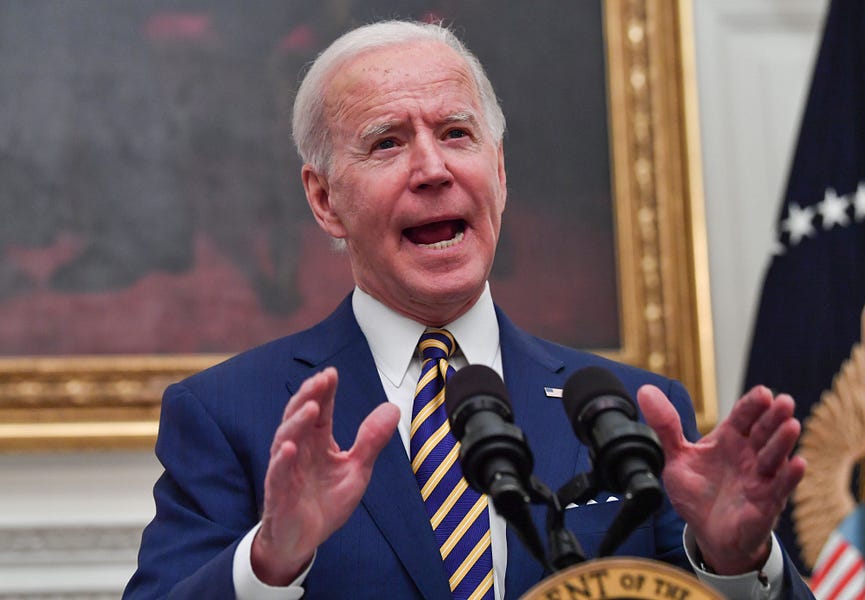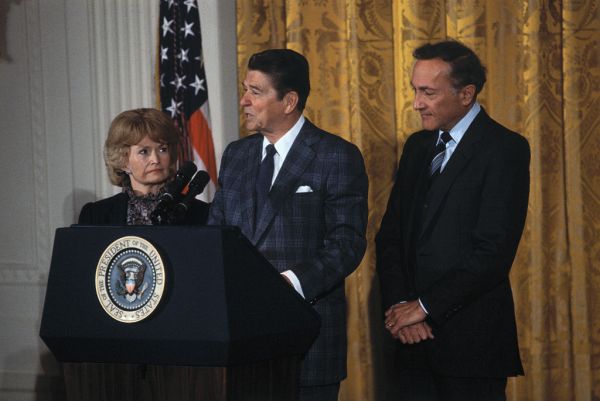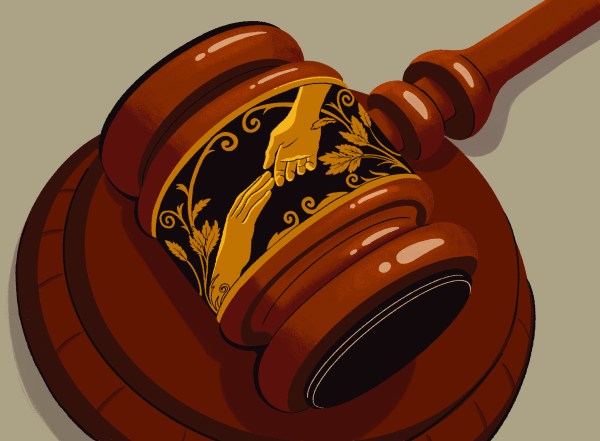During the Democratic presidential primaries, Joe Biden was one of the few candidates against packing the Supreme Court, among other radical “reform” proposals. Bernie Sanders, the other finalist for the nomination, happened to be another, recognizing that adding additional seats for political reasons would just lead to Republicans doing the same thing at their next opportunity. But then in the general election campaign, Biden played coy, not wanting to alienate activists who saw his candidacy as nothing but a vehicle for defeating Donald Trump. Saying that the judiciary was “out of whack,” he proposed a commission to study possible reforms.
Well, after a leak about a handful of putative members in January, the White House finally revealed that Supreme Court commission last week. There are three striking things about it: It’s big (36 members), progressive (about a 3-to-1 ratio), and academic (all but three are professors, plus two retired judges who teach part-time).
The size of the commission will make hearings unwieldy, not to mention the difficulty of trying to write a report by super-committee. The ideological skew won’t give the group much credibility with Republicans, though the media will surely use the presence of the token non-progressives to paint any recommendations as bipartisan and noncontroversial. And the tilt to law school faculty will make it easier to dismiss the commission’s work as ivory-tower pontification with little relevance to the real world.
The commission’s membership and its order to “closely study measures to improve the federal judiciary” does nothing to dispel the perception that such presidential actions are little more than kicking cans down the road. The administration no doubt hopes that these issues will be less central when the eventual commission report comes out, and then that report can be quietly shelved, with action only on a technocratic suggestion like adding lower-court judgeships. Indeed, it’s quite possible that the Supreme Court won’t make too many waves at the end of its term in June, both because John Roberts and Brett Kavanaugh (the middle of the court) don’t want to attract political attention and because the docket doesn’t have as many blockbusters as most years. The biggest flashpoint is the case of Philadelphia’s disqualification of Catholic Social Services from adoption/foster care for not placing kids with same-sex couples—though if the court agrees to take up the Harvard affirmative action case (which wouldn’t be decided until June 2022), that could increase progressive calls for restructuring.
Coincidentally, earlier in the week, Justice Stephen Breyer cautioned against tinkering with the Supreme Court’s size. The court’s “authority, like the rule of law, depends on trust, a trust that the court is guided by legal principle, not politics,” Breyer said at Harvard Law School. “Structural alteration motivated by the perception of political influence can only feed that perception, further eroding that trust.”
Activists have already been calling on the 82-year-old jurist to retire, which shows that dissatisfaction with the court is largely an expression of elite frustration that Democratic presidents haven’t gotten to appoint more of its members. In this telling, Neil Gorsuch is an illegitimate justice because he “stole” Merrick Garland’s seat and Amy Coney Barrett should never have been confirmed so close to the 2020 election (and against Ruth Bader Ginsburg’s dying wish). The opposition to Trump’s nominees was part of the continued refusal to accept the 2016 election, but progressives have made legitimacy arguments against every Republican appointee, going back to the sexual-harassment allegations against Clarence Thomas and the Supreme Court’s having “selected” George W. Bush.
But the court is the most respected government institution other than police and the military, so questions of legitimacy principally arise when the justices rule in ways that disagree with progressive orthodoxy. To quote a brief from five senators led by Democratic Sen. Sheldon Whitehouse in last year’s Second Amendment case, “Perhaps the Court can heal itself before the public demands it be restructured in order to reduce the influence of politics.”
Commission co-chairman Bob Bauer, who was counsel to the Biden campaign and White House counsel under President Obama, has argued publicly against court-packing, but he’ll have a hard time reining in that kind of impulse. And even if he builds consensus over something like term limits—which could help restore confidence in the confirmation process and eliminate the morbid health watches we now have as justices age—that wouldn’t fix the underlying reason why we argue about the Supreme Court (and it would require a constitutional amendment).
All these “reform” proposals boil down to rearranging deck chairs on the ship of state, because what we have is divergent interpretive theories mapping onto partisan preferences at a time when the parties are more ideologically sorted (and polarized) than any time since at least the Civil War. This, at a time when the court regularly decides major political controversies because the federal government has amassed too much power and Congress has abdicated its policymaking responsibility by punting to the executive branch, which then gets sued. For example, the culture war over contraceptive coverage under Obamacare—remember the Hobby Lobby and Little Sisters of the Poor cases?—was based on action by regulatory agencies, not anything Congress legislated. We see the same dynamic with everything from environmental rules to immigration policy, financial regulation to labor law.
Because of that dynamic, there are no easy or quick solutions to the politicization of judicial confirmations and the toxic cloud that has descended over many judicial debates. So while I’ll be keenly interested in the commission’s work, I doubt that it’ll produce anything novel or that improves the functioning of the Supreme Court. And I doubt even more that any policy recommendations will be both uncontroversial and doable.
Ilya Shapiro is a vice president of the Cato Institute, director of Cato’s Robert A. Levy Center for Constitutional Studies, and author of Supreme Disorder: Judicial Nominations and the Politics of America’s Highest Court.








Please note that we at The Dispatch hold ourselves, our work, and our commenters to a higher standard than other places on the internet. We welcome comments that foster genuine debate or discussion—including comments critical of us or our work—but responses that include ad hominem attacks on fellow Dispatch members or are intended to stoke fear and anger may be moderated.
With your membership, you only have the ability to comment on The Morning Dispatch articles. Consider upgrading to join the conversation everywhere.